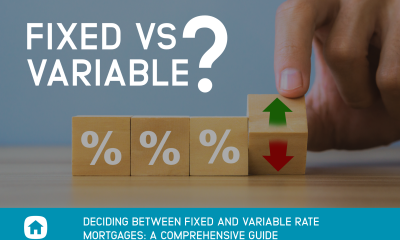(Special) – In spite of record-high levels of debt, Canadians are choosing to save money over paying down their debt, recognizing they have underperformed when it comes to meeting their overall financial goals.
According to recent Statistics Canada data, Canadians’ debt is growing faster than their income and Canadian households had almost $1.79 of debt for every dollar of disposable income in the fourth quarter of last year.
Yet a new report for Edward Jones shows that an overwhelming 77 per cent of Canadians have prioritized saving compared to 44 per cent who say their main priority is to pay down debt.
Of the Canadians who have prioritized saving, 41 per cent said their primary focus is on saving for retirement, 37 per cent are focused on saving for lifestyle issues such as vacations, clothes and accessories, 30 per cent for their future family or children’s education and 26 per cent for an emergency fund. Younger Canadians in the 18 to 34 age category primarily are saving for a home more than another demographic group.
When asked how they have fared in reaching their financial goals, 58 per cent of respondents said they have underperformed in this area. Only 12 per cent said they have met their financial goals.
Patrick French, principal of solutions and consulting with Edward Jones, said in an interview the survey results were not surprising but were “interesting.”
“Overall, the focus on saving does not seem to be a balanced strategy given that debt levels are so high and in many cases the cost of servicing that debt may be higher than what you can get in interest on your savings, which is taxed at the highest rate,” he said.
“Over the last few years equity markets have been strong and interest rates historically low,” French said. “There’s been a belief that saving money and investing in the market can produce growth which outperforms fixed-income rates. That may be an overall perception, but it might not actually work out that way on an individual basis.”
The survey found that paying down long-term debt becomes a higher priority with older Canadians and as household incomes rise.
Fifty two per cent of Canadians 55 and over and 46 per cent of those making over $80,000 a year were more likely to consider themselves on track to meeting their financial goals along with 41 per cent who are married and are university or college educated. Sixty one per cent of Canadians aged 45 to 54 and 53 per cent earning more than $80,000 were the most likely to be saving for retirement.
Canadians who prioritized eliminating debt were split evenly between paying down long-term debt such as a mortgage, car or cottage and short-term debt like credit cards, school and lines of credit.
French says paying down debt is equally important as saving when planning for the future. “The key is to find the right balance between the two based on your individual circumstances and your goals,” French says. “A financial adviser can partner with you to develop saving and debt payment plans tailored to your lifestyle so that you’re able to address both priorities and stay on track towards meeting your financial goals.”
Talbot Boggs is a Toronto-based business communications professional who has worked with national news organizations, magazines and corporations in the finance, retail, manufacturing and other industrial sectors.
Copyright 2019 Talbot Boggs
Talbot Boggs , The Canadian Press

 Buying a Home5 years ago
Buying a Home5 years ago
 Credit6 years ago
Credit6 years ago
 Business4 years ago
Business4 years ago
 5 Mortgage Secrets7 years ago
5 Mortgage Secrets7 years ago
 Buying a Home6 years ago
Buying a Home6 years ago
 5 Mortgage Secrets6 years ago
5 Mortgage Secrets6 years ago
 News12 months ago
News12 months ago
 Business4 years ago
Business4 years ago





